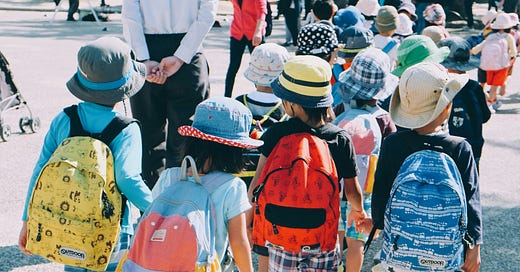I am still hearing from parents who tell me that when their child is unhappy at school or reluctant to go, the advice from professionals is to make home less pleasant. They’re told not to interact with them too much during school hours, to restrict their access to activities they enjoy. A book for professionals tells parents to create an atmosphere of ‘solitary confinement’ around their children if they don’t attend school. One parent I talked to was told to make their child put their uniform on every day and that they should sit in the front room alone with only their school books until it was 3.30 pm and the end of school.
I’m going to stick my neck out on this one. These suggestions are profoundly misguided and have the potential to do great harm. Yes I know they are in the books, I’ve read the books. I know people will claim they are ‘evidence based’ – I dispute the nature of the evidence. I know the logical reason why this is suggested. I just think they are wrong.
The reason I think they are wrong is that this all assumes that the child is choosing not to go to school because they prefer home. It essentially tries to manipulate the balance of the choice – make home less nice, and school will look better in contrast and they’ll go.
This strategy does not take the child or their distress seriously.
We have a child who isn’t happy at school, and the advice is to make them less happy at home, rather than to address the reasons why they aren’t happy at school. In mental health terms, this is a really damaging thing to do. It will increase that child’s distress. It will affect their relationships with their parents. It will increase that child’s likelihood of becoming depressed.
So what do you do instead? I have several recorded mini-courses for parents in different situations, and they are all half price until midnight on Sunday Sept 8th. This includes my most popular course yet, Burnt Out By School?, aimed at parents of autistic teenagers. Please share if you know parents who might want to know.





I feel strongly about this one, you'll see why.
When I was 15 I i stopped going to school. I have no memories of the first day I refused to go: apparently I was so white and looking unwell my mother couldn't bring herself to make me go. She thought I'd pass out on the train.
I remember fretting about going back all the way through the preceding summer break. I had a terrible first year of liceum (14 y/o onwards in Italy) and middle school (11 to 14) had been a crescendo of problems fitting in with other girls in particular. Still, I got out with the maximum grades as I had done in primary school and everyone was so shocked I just point blank refused to go anymore even though my average had dropped to 7 and I had many absences during that first year.
I was bullied by a group of girls who properly detested me and, while I didn't realise it at the time, I struggled with the sensory overload at school and having to travel on public transport for a fair bit of the day. My coping strategy has always been being on my own in my room drawing or playing video games and this time was now severely cut down because of the commute and the sudden increase in subjects to study (half of which I'd never need again) and homework. It was a complete shock for me. I just couldn't cope anymore and so I spent years unable to even leave my room at times.
Was my home a haven for me? Not one bit: my brother was physically and verbally abusive, my mother an alcoholic and my father, when he was around, oscillated between uninterested and sometimes authoritarian and generally inconsistent.
I hated home.
But I didn't feel like there could possibly be anywhere worth escaping to, because all I knew were home and school and I hated both. Even when I had top grades. In fact: I had top grades because in Italy you get held back a year if you don't pass and I wasn't taking any chances: I wanted to get out as soon as possible. Funny, given how eager I was to go to school before I got in the building.
I detest the suggestions in these books because I know they won't work. I'm fairly sure that in a loving environment I'd have still struggled, but it wouldn't have been for so long and so badly. These books are assuming that the kid is taking advantage (or "having you on" as an older colleague said to me a while ago when I was comforting a kid where I work).
If someone who needs a wheelchair was approaching some stairs we'd try to help them get where they need to go and anyone suggesting "that they need to learn!" would be seen as callous and stupid, but when kids struggle with school we just assume they're stubbornly dragging their heels in and treat them accordingly.
Wow.. which "professionals" are advising this? Makes my blood boil! 😠 Well done you for highlighting the issue and informing parents of a better way 👏